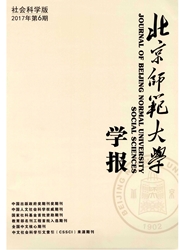

 中文摘要:
中文摘要:
作为出口环节的重要的绿色贸易手段,降低和取消部分产品出口退税已成为转变贸易发展方式、促进节能减排一揽子政策措施的重要组成部分。为了解“降低和取消污染性行业产品出口退税”这一贸易政策措施的效果,填补出口退税环境效应量化研究的空白,遵循链式反应评价方法的逻辑,建立了由经贸政策到经济行为,再到环境影响的可计算一般均衡(CGE)模型,量化评估了“仅对单一污染性行业出口产品降低或取消出口退税”,以及“对全体污染性行业出口产品降低或取消出口退税”的环境经济影响。经验分析结果表明:调减污染产品/产业出口退税虽然使出口量受到一定影响,但能够改善经济系统的环境表现;特别是对全体污染性行业产品同时降低或取消出口退税,可以有效防止“污染泄露”,取得更好的污染减排效果;其经济与环境效应。在短期内主要由规模效应及其引致的结构效应主导。因此,面向环境保护的出口退税政策调整应尽量涵盖所有污染性行业,同时应尽快出台以环境保护为目的的长期性经济政策手段。
 英文摘要:
英文摘要:
This research follows the chain reaction logic of "trade policy-economic behavior-environmental impact" to make a quantitative analysis of the environmental and economic impacts of the "reduction or elimination of export tax rebates" both in one single polluting industry (e. g. , iron and steel) and in all polluting industries. The framework is based on a computable general equilibrium model. The simulations suggest that the reduction or elimination of export tax rebates can to some extent improve the environmental performance of the overall economic system. To be specific, this policy, when exerted on a single polluting industry, cannot imProve the general environmental performance of the economy due to "pollution leakage" effects caused by production factors flowing to other polluting industries; but when exerted on all the polluting industries, such "pollution leakage" can indeed be avoided. The study also indicates that the trade policy instruments aimed at environmental protection and improvement are not directly targeted on pollution emission, which will make the optimal allo- cation of resources according to economic rather than environmental optimization. To sum up, to protect the environment effectively, the "reduction or elimination of export tax rebates" should cover all polluting industries, but such indirect adjustment still could not directly replace the role of policy instruments, such as environmental taxes, for environmental protection.
 同期刊论文项目
同期刊论文项目
 同项目期刊论文
同项目期刊论文
 期刊信息
期刊信息
